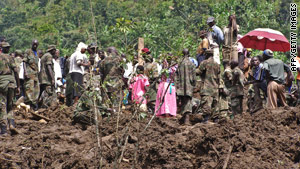 Vugar Khalilov's supporters say he is being denied medical treatment |
A British public relations executive who once worked for ousted Kyrgyzstan president Kurmanbek Bakiyev has been arrested and detained in Bishkek.
Former BBC reporter Vugar Khalilov, who moved there in 2009, has been accused of money laundering - which he denies.
The new government has been accused of ignoring Mr Khalilov's human rights and keeping him in solitary confinement since his arrest on 12 April.
Mr Khalilov's supporters have said the charges are politically motivated.
He moved from London to Kyrgyzstan, where he was the head of public relations company Flexi Communications.
Two-month detention
The 41-year-old was held by members of the national security service shortly after meeting David Moran, the UK ambassador to Kazakhstan and Kyrgyzstan.
Prosecutors confirmed his detention on Friday and spokesman Ulan Dykambayev said: "On April 12, the Prosecutor Generals' Office sanctioned the arrest of Vugar Khalilov on charges of legalising and laundering funds obtained in a criminal manner."
He told the AFP news agency that Mr Khalilov will be held for two months while an investigation takes place.
 Kurmanbek Bakiyev maintains he is still leader of Kyrgyzstan |
Supporters have set up a site on the social networking site Facebook.
Mr Khalilov's lawyer Artyom Ivanov has now met his client following representations in court, according to Mr Khalilov's brother Azer.
He also said his relative was a successful businessman who the new administration had used as a "scapegoat".
He said: "In a country where the president and his allies control most of the economy, it was inevitable that some of his business would be in contact with people close to President Bakiyev."
Health fears
Azer Khalilov said his brother had written 15 letters to UK Prime Minister Gordon Brown and Foreign Secretary David Miliband, but that these letters had not been received by the British consul in Bishkek.
He has since written another letter appealing to Mr Brown, Azer said.
He also added that Azerbaijan-born Mr Khalilov's family had urged him to leave the country during the recent protests - he refused, saying he had no reason to be scared and had done nothing wrong.
The detainee's brother urged the Foreign Office to ensure Mr Khalilov's legal rights were upheld and said the family feared his spinal hernia would get worse because of detention conditions.
"We don't want him to be given practically a life sentence of catching an illness during his confinement even if he is found innocent, which we are confident he will be," he said.
The Foreign Office said it was aware of the arrest and would monitor the case.
A spokeswoman said: "Consular officials have visited the individual in detention and are providing consular assistance."
Overthrown
The charges are believed to relate to a loan that Mr Khalilov took out to start his public relations company.
Mr Bakiyev was overthrown in mass protests on 7 April. More than 80 people were killed when anti-government protests in Bishkek, and other towns turned violent.
Kyrgyzstan's interim leaders said Mr Bakiyev's administration ordered troops to open fire on protesters.
They have said he should stand trial over the unrest in which 85 people died.
Mr Bakiyev maintains he is still president.




 Fresh earth is exposed after massive landslides Monday night in Uganda.
Fresh earth is exposed after massive landslides Monday night in Uganda.





